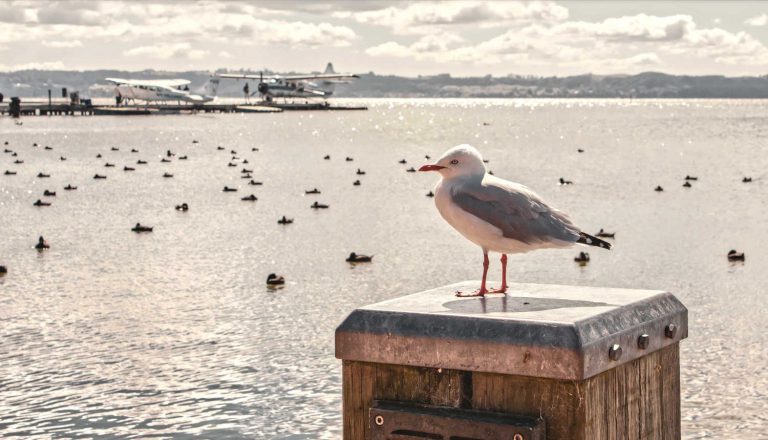A historical park where Rotorua’s resort / spa heritage started
A free public historic garden open 24/7 is a highlight for many visitors. The gorgeous garden is nestled on the edges of Lake Rotorua and within walking distance of the town centre. The gardens are home to the historic Bath House, croquet pavilion, sculptures and formal flower beds.
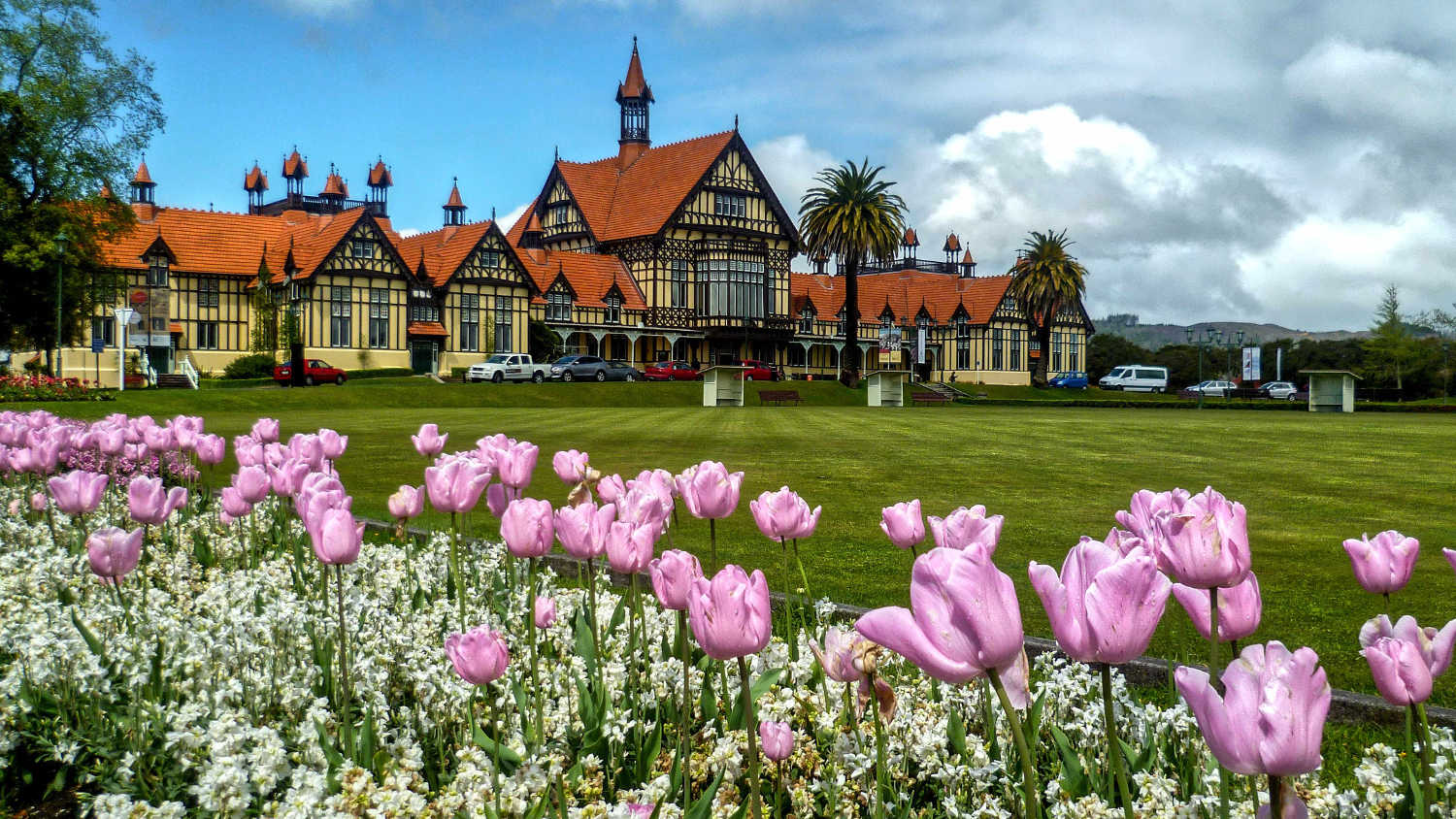
Government Gardens is one of Rotorua’s historic landmarks and a must go destination. The area was originally named Paepaekumana. In the late 1880’s the local Maori gifted 50 acres to the Crown “for the benefit of the people of the world”.
The ornate Elizabethan revival style buildings facing the park entrance were originally part of an Edwardian spa resort known as the Bath House. The verandahs and gothic elements are a fusion of taste and style which clearly reflects the time and place of the building. The design was the vision of the Sanatorium’s first balneologist, Arthur Wohlmann; his ideas were drawn up by Rotorua Overseer of Works, B.S. Corlett, the Department’s draftsman, W.J. Trigg and assisted by a Rotorua architect, J.W. Wrigley, a successful collaboration.
The buildings are one of the New Zealand government’s first forays into tourism. The gifted lands geothermal area was known for its therapeutic hot pools. Nearby Sulphur walk is a great place to view what the original mineral hot pools would have looked like before the development of the resort. The stunted plants and lunar landscape of Sulphur Bay is in stark contrast to the regimented plantings, wide sweeping green lawns and aesthetic of an Edwardian spa.
Check here for more details about the walk.
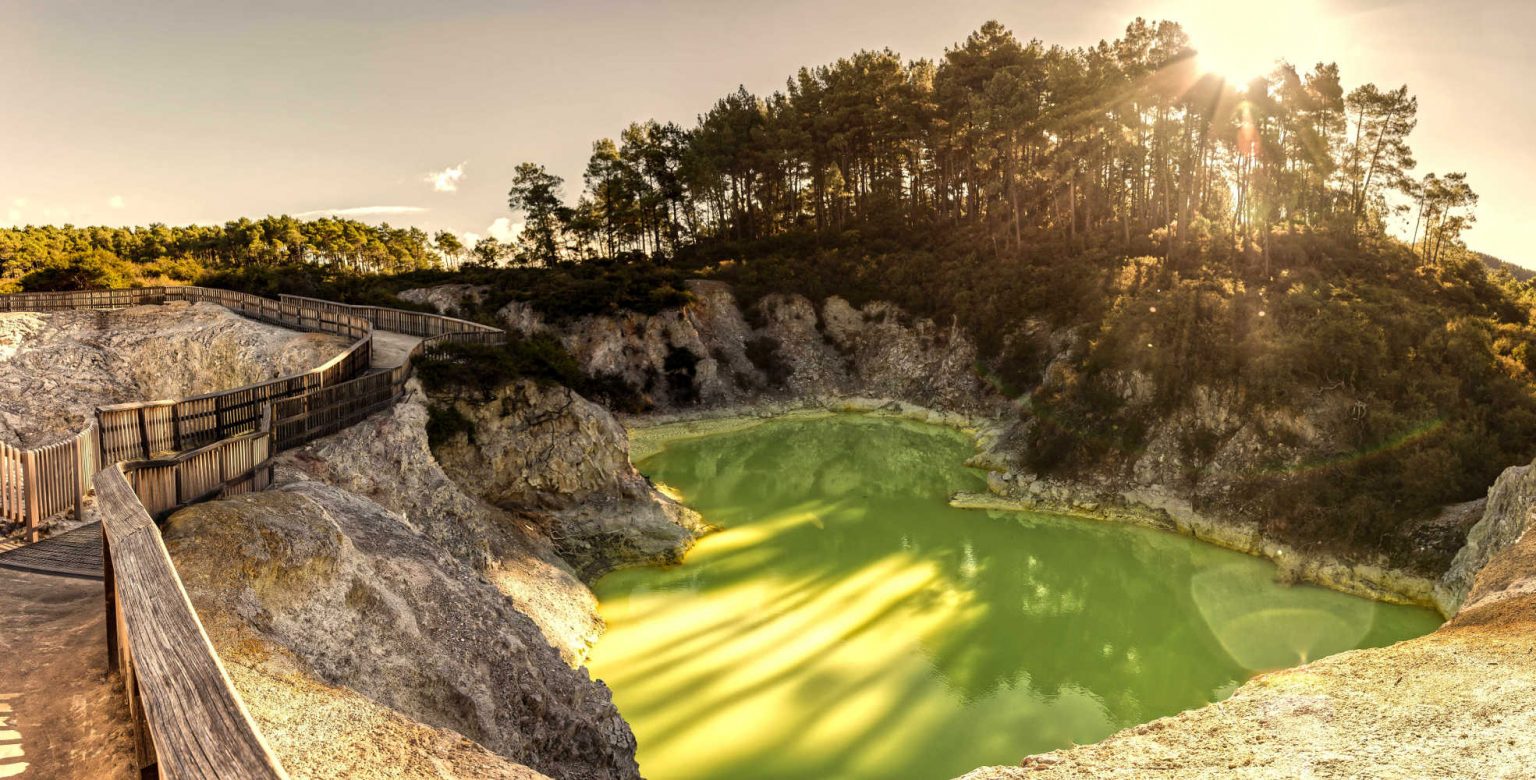
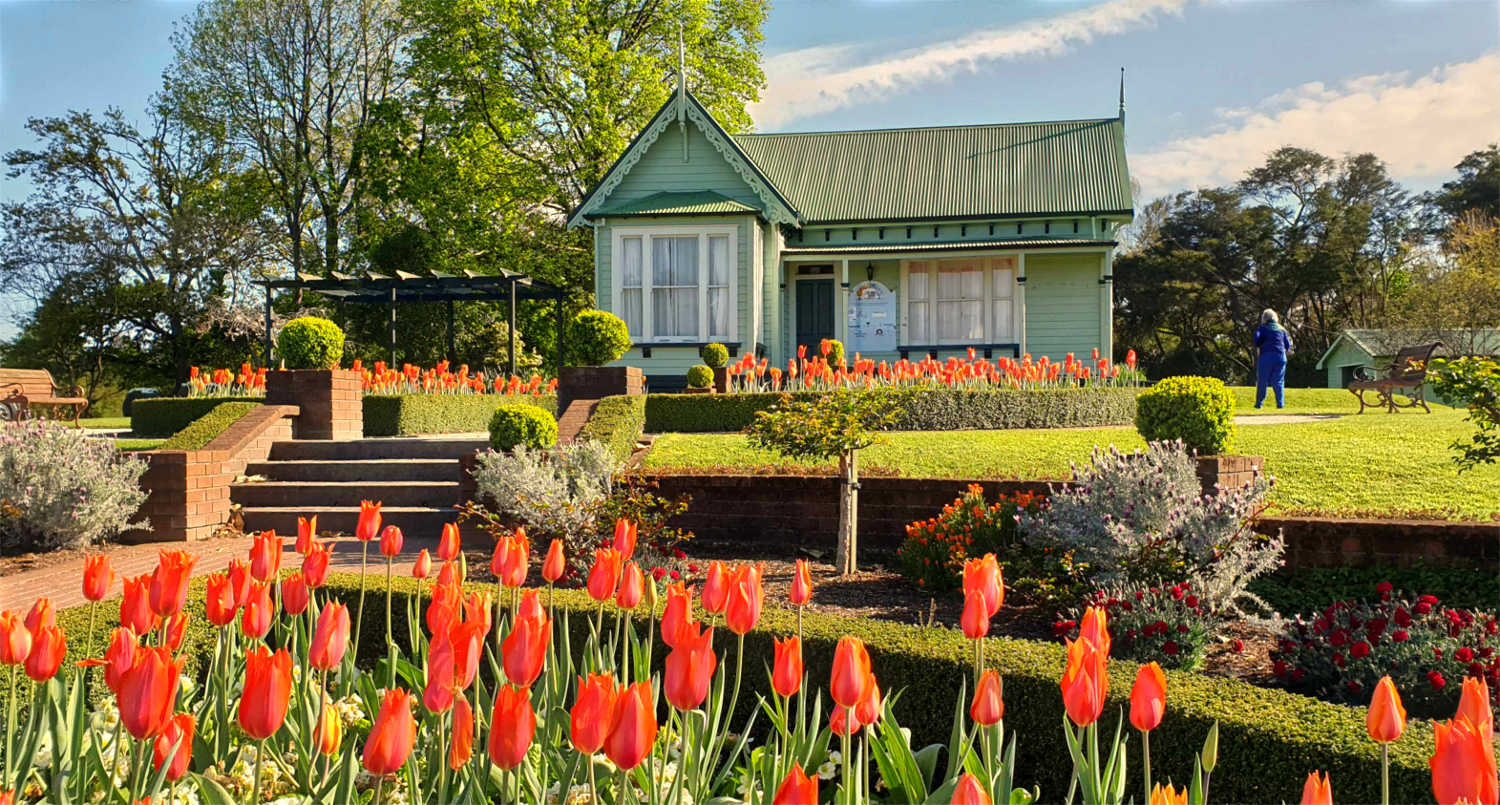
Rotorua and its development as a world class resort spa influenced the development of an aerial North island railway connection between Wellington and Auckland. The main trunk line had a stop specifically designed for tourists. Today the gardens acknowledge the past and present with formal English planting style and the Wiatukie sculpture is in harmony with each other. The bronze sculpture, 2001 was unveiled to mark the new millennium.
Entrepreneurial Maori recognised the opportunities within tourism with other thermal attractions at places such as Whakarewarewa and Ohinemutu. The living village of Whakarewarewa initiated local guiding attractions and local guides quickly became celebrities of their day. The highly skilled carver, Tene Waitere of Ngati Tarawhai blended traditional knowledge of carving traditions into contemporary interpretations producing carvings for many as well as supervising carvings within the Rotorua Government Gardens.
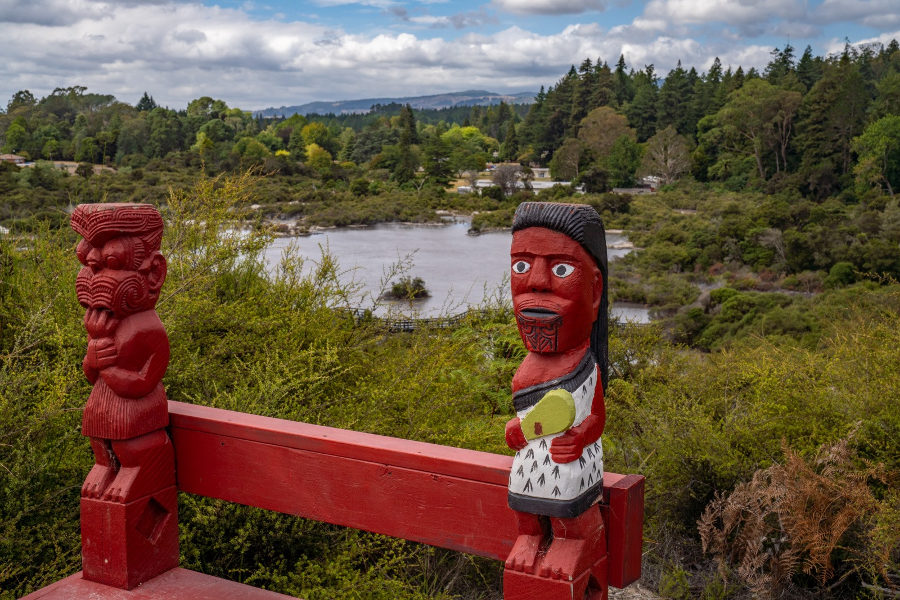

The Edwardian resort was one of the first resorts to allow both men and women bathe in the same pool.
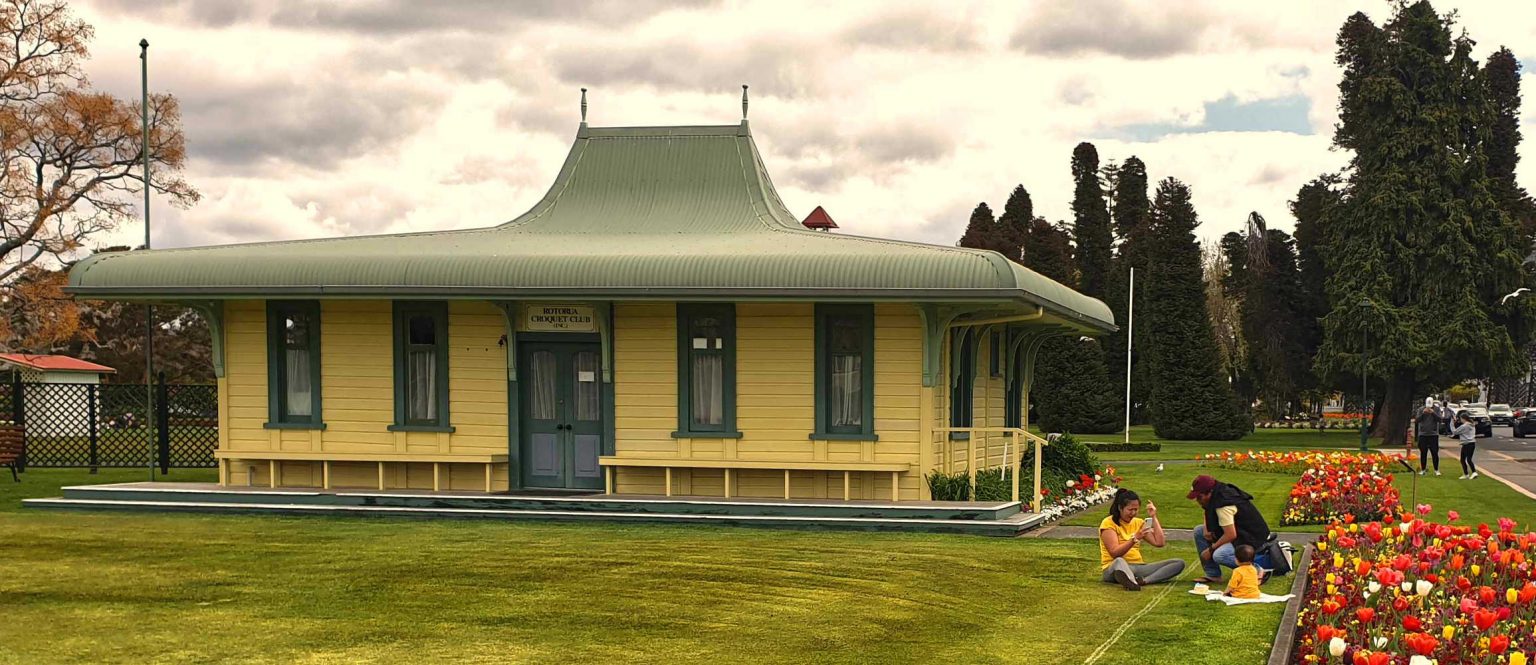
Look closely at the entrance arches design. The pattern represents the English royal crown. Originally erected on the intersection of Fenton and Hinemoa streets, in 1901 to honour the visit of the Duke & Duchess of Cornwall (King George V and Queen Mary). The arch is known as the Princes Arch.
The Edwardian croquet house has an active membership today.
The historic building is now home to the Rotorua Museum and art gallery. It is currently closed for renovation and earthquake strengthening. There is a soldiers’ memorial for the servicemen of the local Te Arawa tribe, the Klamath Falls Rose Gardens, Te Runanga Tearooms and a band rotunda.
Read more about places to visit in Rotorua in our Rotorua travel guide.
BEST BITS TRAVEL GUIDE


